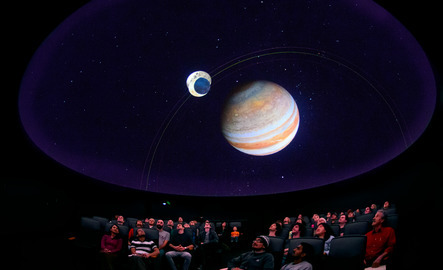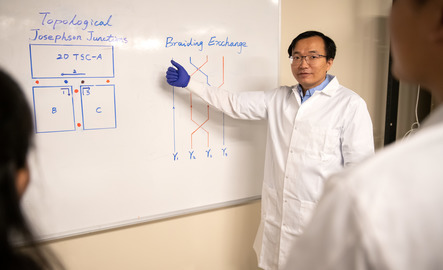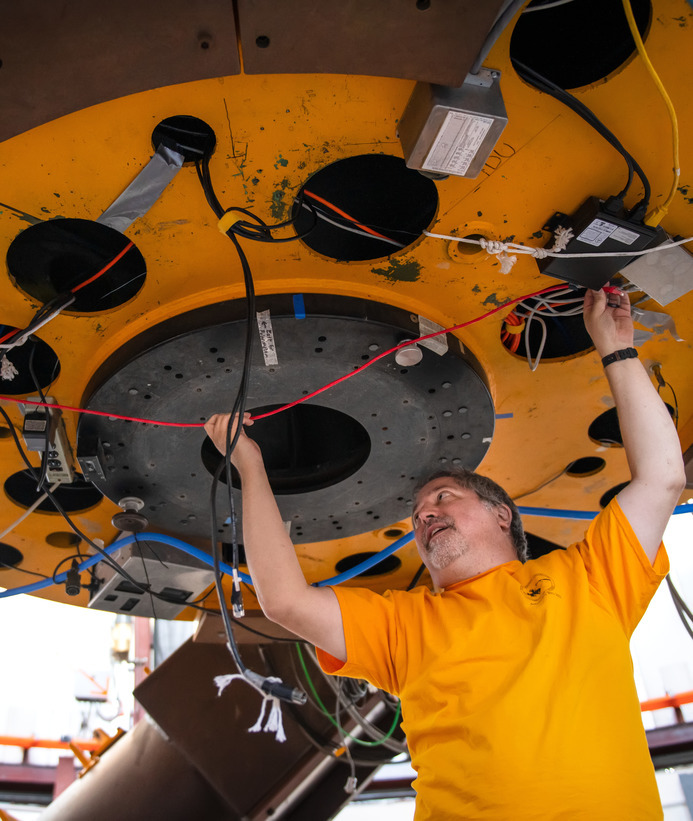About Astronomy and Astrophysics at UW
UW is perhaps the only U.S. university with full ownership of a research-grade, 2.3-meter-class telescope (WIRO) located near campus. With six faculty members dedicated to astronomy research and approximately 30 astronomy majors, UW offers an excellent environment for conducting hands-on, well-supported research as part of your undergraduate degree. Our faculty also have access to top-10 supercomputers like Perlmutter, powerful space telescopes such as HST and JWST, and cutting-edge instruments like the Dark Energy Spectroscopic Instrument. This means you'll have unique opportunities to work with these advanced technologies during your studies at UW!

Our faculty are active across campus and in the community and collaborate with colleges
and departments like Education, Anthropology and Computer Science. Many of them are
also leaders in their fields of study.
Notably, Dr. Henry Kobulnicky has received multiple N.A.S.A. grants for his work on
the Nature of Extraplanar Galactic Dust and Dr. Danny Dale has been awarded access
to the new James Webb telescope for three of his research projects.

What Can You Do With a BS in Astronomy and Astrophysics?
Students earning astrophysics degrees are well-trained problem solvers who enjoy diverse, challenging careers and who earn salaries competitive with fields like engineering. Most astrophysics degree students choose to earn a double major in physics & astrophysics.
- Astrophysicist
- Astrophysics Technologist
- Research Physicist
- Aeronautical Engineer
- Astrophotographer
- Meteorologist
- University Professor
- High School Science Teacher
- and more!
- Duke University
- University of Arizona
- University of Pennsylvania
- Pennsylvania State University
- UT Austin
- Princeton University
- New Mexico State University
- ITT Tech
- Biomedicine
- U.S. Marine Corps.
- Bill Barrett Corp., Denver
- Lowell Observatory
- U.S. Air Force
The astronomy and astrophysics job market is expanding! While the field is competitive, astronomy and astrophysics majors who are passionate about scientific discovery and willing to pursue advanced education can find fulfilling careers in academia, research institutions and government agencies.
Yes! Many astronomers and astrophysicists work for NASA in research, mission planning or data analysis roles, often after earning advanced degrees.
Exploring the Universe Starts Here
Studying astronomy and astrophysics at the University of Wyoming offers a powerful mix of hands-on experience, cutting-edge research and close faculty mentorship in a stunning setting. UW provides access to world-class observatories and expert faculty. In our close-knit academic community, you’ll engage in real research—exploring the early universe with the JWST or running simulations on top-tier supercomputers like Perlmutter. Whether you're headed for grad school, a research career or simply want to explore the cosmos, UW gives you the tools and support to launch your future among the stars.
“No other undergraduate program I've heard about compares to UW in terms of access to research, especially early in college."
- Astronomy & Astrophysics Graduate


